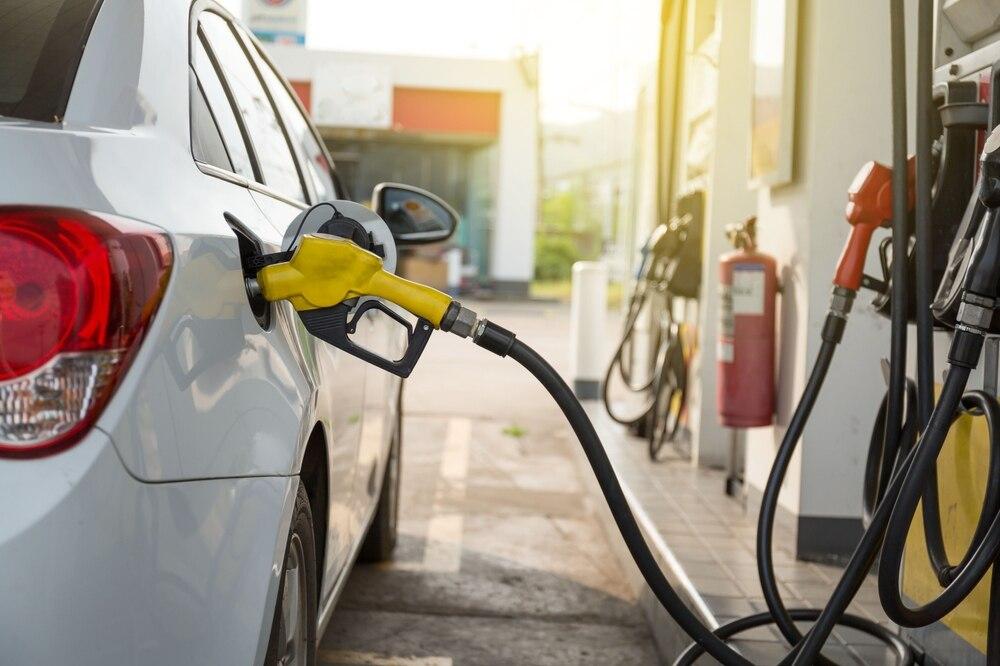11.08.2024
How many types of fuel are there? How are they different?

Knowing the Different Types of Fuel
There are many types of fuel. Some cars need diesel, some need gasoline. This makes many drivers wonder how different the types of fuel are and which type should be chosen to enhance driving efficiency. This article has the answer.
How many types of fuel are there?
Generally, fuel for cars can be divided into 3 main types:
1. Diesel fuel
Diesel is a fuel derived from the distillation of crude oil. It is more viscous than gasoline. It is suitable for diesel engines that use compression ignition. Diesel has higher energy per unit volume than gasoline, making it more fuel efficient. It is suitable for trucks, buses, and cars that require high torque.
2. Gasoline fuel
Gasoline is also a fuel derived from the distillation of crude oil, but it is less viscous than diesel. It is suitable for gasoline engines that use spark plug ignition. Gasoline has faster and cleaner combustion properties. It is suitable for passenger cars and motorcycles.
3. Gasohol fuel
Gasohol is a fuel that is a mixture of gasoline and ethanol. In various ratios such as E10 (10% ethanol), E20 (20% ethanol), and E85 (85% ethanol), Gasohol was developed to reduce dependence on petroleum and reduce pollution. It is suitable for new cars that are designed to use gasohol.
List of car fuels currently found
Gasohol 91 (Gasohol 91)
Gasohol 91 is a fuel with an octane rating of 91 mixed with 10% ethanol. It is suitable for older cars that require lower octane ratings.
Gasohol 95 (E10) (Gasohol 95: E10)
Gasohol 95 (E10) is a fuel with an octane rating of 95 mixed with 10% ethanol. It is a fuel that is widely used in general cars.
Gasohol 95 (Gasoline 95)
Gasohol 95 is a fuel obtained by mixing unleaded gasoline with ethanol. It has similar properties to gasoline octane 95, so it can be used in cars that require gasoline.
Diesel
Diesel is a fuel for diesel engines. There are many grades, such as regular diesel and premium diesel. Gasohol 95 (E20) (Gasohol 95: E20)
Gasohol 95 (E20)
Is a fuel with an octane value of 95 mixed with 20% ethanol. Suitable for new cars designed to use with E20.
Gasohol 95 (E85) (Gasohol 95: E85)
Gasohol 95 (E85) is a fuel with an octane value of 95 mixed with 85% ethanol. Suitable for cars designed specifically to use with E85 only.
Are gasoline 95 and gasohol 95 the same?
Although gasoline 95 and gasohol 95 have the same octane value, they have the following important differences:
Gasoline 95 is a fuel made purely from petroleum. There is no ethanol mixed in. Suitable for cars that are specifically designed to run on gasoline.
Gasohol 95 is a blend of gasoline and ethanol (usually 10% ethanol). It is suitable for newer cars that can run on ethanol-based fuels.
The difference affects combustion efficiency, fuel consumption, and long-term effects on the engine.
Different types of fuel nozzles
How is using the wrong type of fuel dangerous?
Using the wrong type of fuel can cause several dangers and damages, including:
Damage to the engine
Using diesel in a gasoline engine can cause severe engine damage, and using fuel with an octane rating lower than the specified can cause engine knocking, which can also damage the piston and valves.
Fuel system
Using gasohol in an unsupported vehicle can cause faster deterioration of rubber and plastic parts in the fuel system, and may cause clogging in the fuel lines and injectors, which will result in malfunctions in the fuel supply system.
Performance
Using the wrong type of fuel can cause the engine to be difficult to start, idle, or stall, and may also result in increased fuel consumption and reduced engine performance.
Emissions
Incomplete combustion from using the wrong type of fuel can cause increased emissions, adversely affect the environment, and may damage the catalytic converter, which is responsible for reducing exhaust emissions.
Safety
In severe cases Using the wrong type of fuel can cause sudden engine damage while driving, affecting road safety.
Expenses
Repairs caused by using the wrong type of fuel can be expensive because it may require replacing damaged parts or components, resulting in higher than normal costs.
Choosing the right fuel for your car not only helps maintain engine efficiency, but also helps extend its lifespan and save costs in the long run. Therefore, for maximum safety and efficiency, you should use the fuel recommended by the car manufacturer. However, if you are not sure, it is best to consult a professional mechanic or study the car's user manual in detail.
In addition to knowledge about fuel, Autovilla, a center for a variety of used cars, also has a lot of knowledge about cars to follow, along with good knowledge about choosing a good used car. Or if anyone wants to buy a used car, you can come and choose with us at any of our 3 branches.
For more information, please contact
Srinakarin Branch Tel. 097-921-9552
Romklao Branch Tel. 095-906-0633
Lam Luk Ka Branch Tel. 092-940-5098
References
Types of Gasoline Explained: Learn the Differences. Retrieved July 31, 2024 from https://www.kbb.com/car-advice/gasoline-guide/

